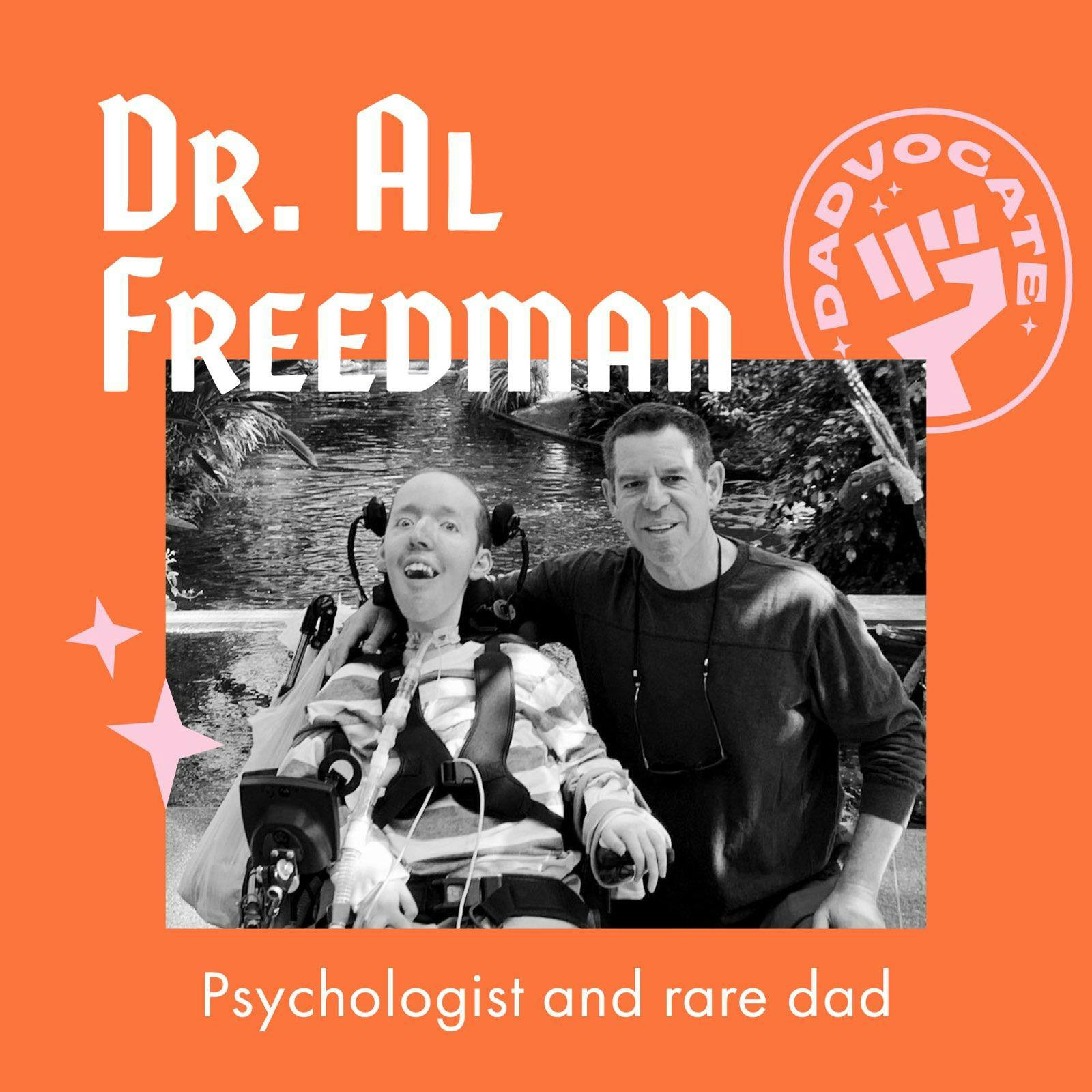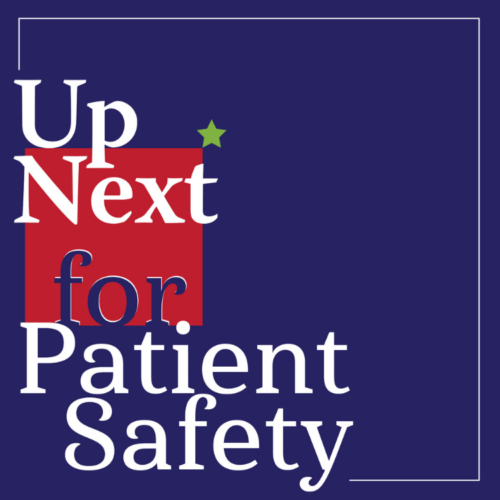Mental Health and living with chronic stress with Rare Disease Dad and Psychologist, Al Freedman, Ph.D
ONCE UPON A GENE – EPISODE 090
Rare Disease Dad and Psychologist Al Freedman, Ph.D
Al Freedman, Ph. D is a rare dad to a son with Spinal Muscular Atrophy (SMA), a psychologist who specializes in supporting families affected by rare disease and disability, a speaker, author and such a nice guy. There’s a lot of wisdom to gain from his personal experience as a rare disease dad and his professional expertise.
EPISODE HIGHLIGHTS
Can you tell me about yourself and your son?
My son’s name is Jack and he was born a healthy baby in 1995. Six months later he wasn’t sitting up, rolling over or developing normally. The pediatrician advised us to take Jack to a pediatric neurologist. Jack was soon diagnosed with an untreatable condition called Spinal Muscular Atrophy (SMA) and that he wouldn’t be with us for more than a year from his diagnosis. We were traumatized by the diagnosis and prospect of losing our baby, but 25 years later I’m blessed he’s still with us. I’m lucky to be his dad and have him here to guide me to help other families facing similar challenges.
Were you a Psychologist at the time of Jack’s Diagnosis?
I was finishing my doctorate in counseling psychology and in my year of internship, so I was just out of school. I planned on being a psychologist, but hadn’t planned on needing one so acutely in the middle of my internship. I found myself on both sides of the therapy room.
What is the difference between trauma and PTSD?
PTSD stands for Post Traumatic Stress Disorder, so it’s a form of trauma, but trauma can take on many forms. In working with many families facing rare disease diagnosis and the challenges that come with that, the first thing that’s important to know is that they’re not crazy but the symptoms can make you feel crazy. Trauma symptoms are real and normal- a normal reaction to very unusual stressors.
Does trauma or PTSD ever go away?
Most people at the beginning of a rare disease diagnosis journey are more fragile and have more pronounced symptoms due to their lives being flipped upside down and they’re disoriented. After time, people are able to meet other people they relate to and get practice in the new world. Depending on the journey and experiences, some may have ongoing trauma responses to triggers.
What are the long term effects of living with chronic stress?
A lot of the most complicated things I see as a practicing psychologist are solved by looking at three basic things- how you are sleeping, how you are eating and if you can exercise. We can’t function well without sleep, proper nutrition and exercise. Long term chronic stress can impact your mental health and eventually your physical health so it’s important to care for the caregiver.
What message would you like to share with everyone listening?
Never give up and keep your hope alive for yourself, your kids, your family. I never imagined back in 1995 that Jack would live this long and be so vibrant. I never imagined something so positive could come from something so painful. Have hope that you’ll find meaning in your experience.
CONNECT WITH AL FREEDMAN
Freedman Counseling Associates Website
https://www.freedmancounseling.com/
Freedman Counseling Associates Facebook
https://www.facebook.com/freedmancounselingassociates/
https://www.linkedin.com/in/albertfreedman/
TUNE INTO THE ONCE UPON A GENE PODCAST
https://open.spotify.com/show/5Htr9lt5vXGG3ac6enxLQ7
https://podcasts.apple.com/us/podcast/once-upon-a-gene/id1485249347
https://www.stitcher.com/podcast/once-upon-a-gene
https://overcast.fm/itunes1485249347/once-upon-a-gene
CONNECT WITH EFFIE PARKS
https://twitter.com/OnceUponAGene
https://www.instagram.com/onceuponagene.podcast/?hl=en


































